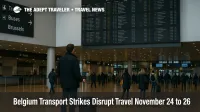Strikes in Belgium
Belgium, known for its historical sites, world-class beer, scrumptious chocolate, and notable comic strips, has long been a destination cherished by many travelers around the world. Yet, when planning a journey to Belgium, any seasoned traveler should be alert to one aspect of the landscape that could significantly impact their plans - strikes. Public-sector strikes, in particular, are fairly common, and these can affect various facets of transportation within the country like trains, buses, trams, and even airports. This issue often stands out due to its regularity and influence but is frequently overlooked in travel preparations.
History and Causes of Strikes in Belgium
Belgium has a long history of labor strikes, going back to the 19th century. Frequently cited among the reasons for these strikes are social inequity, wage disputes, working conditions, political crises, and disagreements over government policies. In more recent years, the austerity measures instigated by the government sparked intensified demonstrations and strikes. Belgian labor unions are particularly influential and active, often taking to public-sector strikes as a means of negotiation and voicing their concerns.
Impact on Transportation
Strikes' repercussions often ripple out beyond the workers directly involved and cascade into the public sphere. One of the most notable effects are on public transportation systems. When strikes happen, rail, bus, and tram services can be reduced considerably or even come to a complete halt. This can cause significant disruption, particularly in larger cities such as Brussels and Antwerp where public transportation is heavily relied upon. Moreover, strikes at airports such as Brussels Airport have led to flight cancellations and delays. This can mean that your travel plans within, into, or out of the country could be severely affected.
Facing Strikes Head-On
Unfortunately, dealing with public-sector strikes is not something that can be avoided when traveling to Belgium. But having a good understanding of the situation and how it can impact your travel plans can help you be prepared and can make things easier to navigate. Monitoring respected news outlets and social media feeds for upcoming strikes, even just before your travel, can help you stay informed. You do have options to remain mobile during strike periods where you may need to consider car rentals, taxis, or bike hires.
Other Effects Of Strikes
Transportation disruptions are perhaps the most noticeable impacts of labor strikes on travelers, yet there are other less conspicuous effects. These include the shutdown of various public offices, museums, and tourist sites. Public schools may also be closed, which can increase the number of locals and children at popular tourist attractions that may still be open. Strikes can also create heavier foot traffic in cities as locals may need to walk or cycle to work.
Proactive Planning
The regularity of these public strikes in Belgium means that it is beneficial for travelers to plan ahead. It’s crucial to have flexible travel and accommodation bookings that allow changes if necessary. Having a backup travel plan that involves alternate transportation methods is also helpful in these situations. Knowing where to find reliable, up-to-date information about strikes is also vital. Many governmental and transport websites provide English versions making tracking these strikes straightforward for foreign tourists.
Making the Most of Strikes
While strikes may be seen as an inconvenience, travelers can also see it as an opportunity to explore destinations in different, unique ways. It can encourage exploration of local, off-the-beaten-path neighborhoods by foot or bicycle, or even spark the opportunity to engage with locals about their views and experiences. And while certain tourist attractions may close during strikes, others, particularly outdoor attractions, will remain accessible. So you can still create wonderful travel memories, notwithstanding the strikes.
In conclusion, strikes in Belgium, while unpredictable and potentially disruptive, are manageable for well-informed and flexible travelers. The key is in anticipating potential disruptions, staying updated on the strike situation in Belgium, and being prepared with backup plans. Seeing Belgium's strikes as a possible adventure waiting to unfold rather than simply an inconvenience, can also vastly improve the overall travel experience.
Strike Risk at Brussels Airport Flights March 12

Belgium Strike Days Hit Brussels Airport Transfers Feb 10

Western Europe Strike Spillover Risk For Airport Transfers

Belgium National Strike Disrupts Transport Feb 5
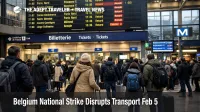
Wallonia Transit Strike Disrupts Buses and Trams

Belgium Rail Strike Daily Timetable Through Jan 30

Belgium Rail Strike Eurostar Connections Risk Jan 30

Belgium Rail Strike Cuts Trains Through January 30

Belgium Rail Strike Disrupts Trains Jan 25 to 30

Belgium Rail Strike Disrupts Airport Trains Jan 25-30

Europe Transport Strike Dates 2026 for Flights and Trains

Belgium Rail Strike SNCB Trains, Minimum Service Rules
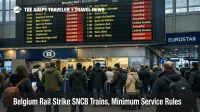
Belgium Rail Strike Cuts Trains Jan 25 to Jan 30
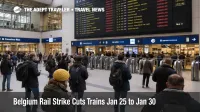
Belgium Nationwide Rail Strike Hits Trains Jan 26 to 30
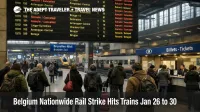
Strike Disrupts Brussels, Wallonia Transport Dec 15, 2025
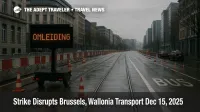
Belgium Strikes And Storms Disrupt Brussels Flights, Trains
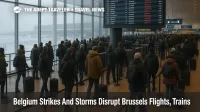
Belgium General Strike Shuts Brussels Flights November 26
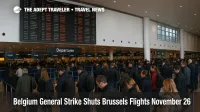
Belgium National Strike Shuts Airports And Trains
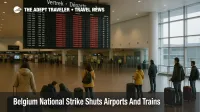
Belgium November 24 26 Strikes Slam Flights And Trains

Belgium Strikes Disrupt Flights, Trains, And Airports
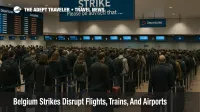
Belgium Strikes Disrupt Flights, Eurostar November 24 To 26

Belgium Strikes November 24 To 26 Hit Flights And Trains

Belgium Strike Shuts Brussels Airport November 26
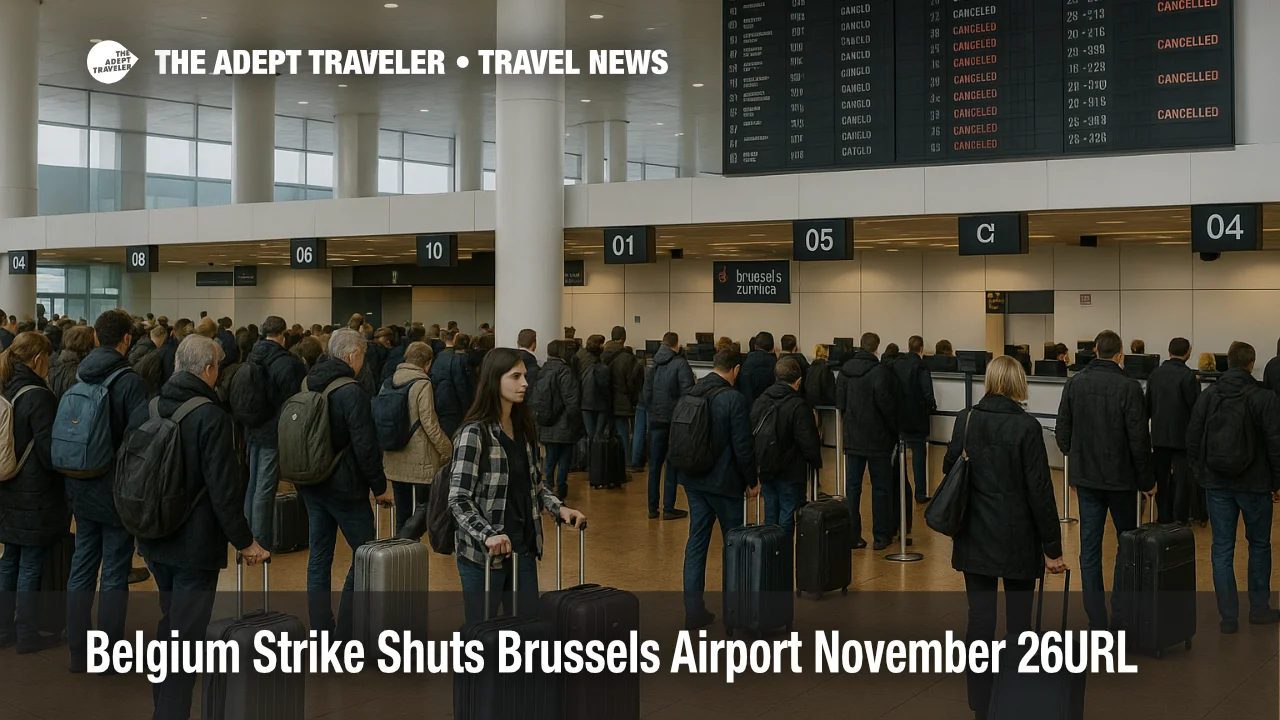
Belgium Late November Strikes Now Come With Airline Waivers
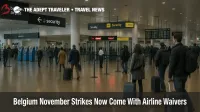
Belgium Transport Strikes Disrupt Travel November 24 to 26
